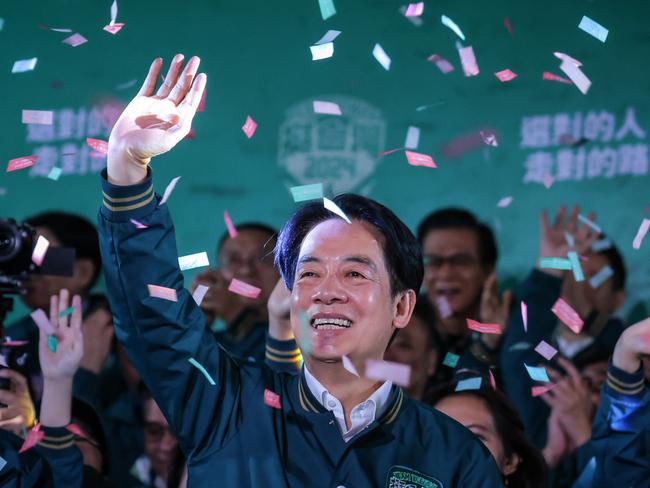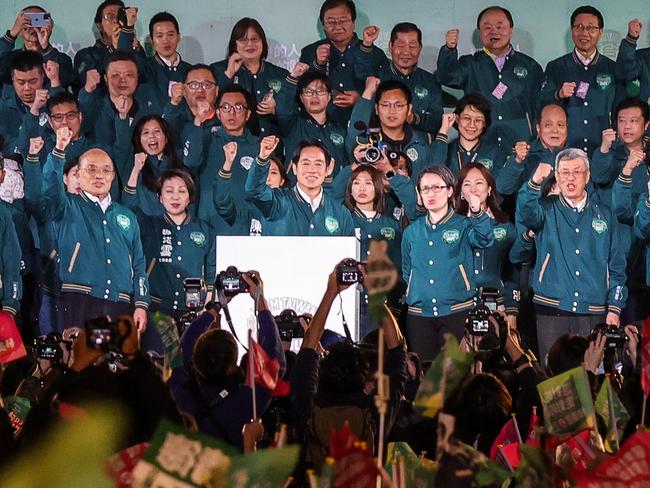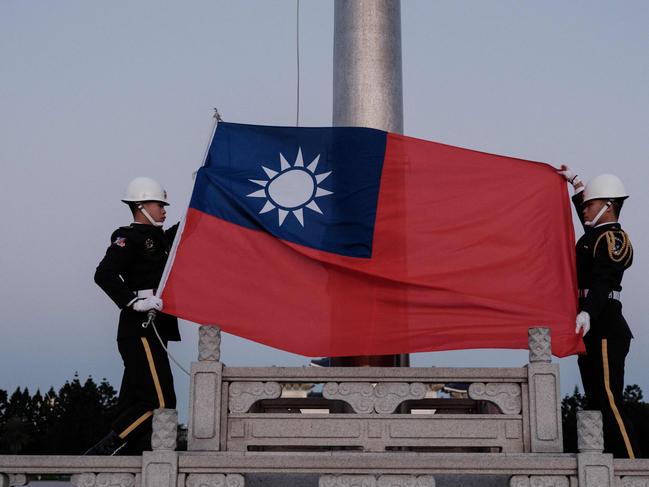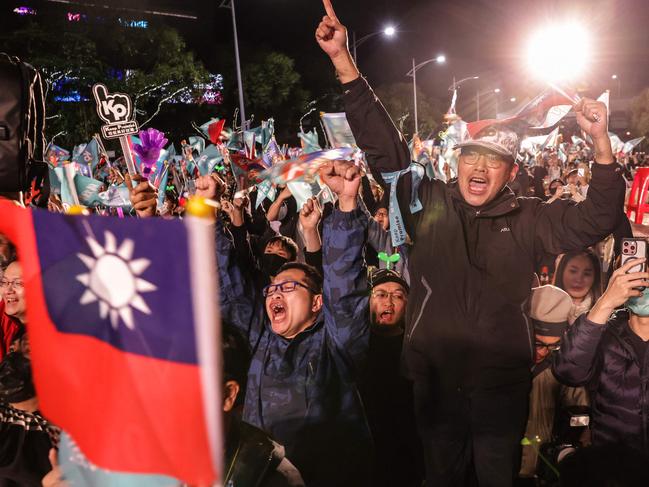Taiwain election result leaves PM Anthony Albanese in delicate position with China
A senior analyst says Anthony Albanese faces a tricky balancing act between China and Taiwan’s new democratically elected government and warns war may be inevitable.
World
Don't miss out on the headlines from World. Followed categories will be added to My News.
Australia faces a delicate balancing act in supporting Taiwan’s new democratically elected government with its desire to stabilise relations with China, says a senior analyst.
And he has warned that the election result will not end China’s determination to force the country into unification – a quest that he believes will likely result in a “major power war”.
Dr Malcolm Davis, a senior analyst at the Australian Strategic Policy Institute, said Australian Prime Minister Anthony Albanese would be under pressure to improve ties with the new government in Taiwan, while balancing his commitment to stabilise relations with China.
“I think that there will now be added incentive and pressure on the Albanese government to improve ties with the new DPP (Democratic Progressive Party) government,” he said.
“But obviously, Albanese is still caught up with the whole thing of trying to stabilise relations with China, irrespective of the fact that the Chinese ambassador just threatened us that if we if we didn’t distance ourselves from Taiwan, that how did he put it, we were pushed over into the abyss.
“That’s, that’s pretty wolf warrior language, in my opinion. It does kind of undermine the notion that there’s been some sort of stabilisation in the relationship.”

Dr Davis said the election result was a clear demonstration of the strength and vibrancy of Taiwan’s democracy.
“China didn’t want the DPP to win, they wanted the KMT (Kuomintang) to win. So the Chinese have basically been forced to watch as the DPP has been democratically elected by the Taiwanese people.”
He said he the Chinese government had already refused to accept the result as a majority win for the DPP, and would continue to put pressure on Taiwan to accept unification.
“I think that if it gets to the point, for example, where we’re getting closer to say 2026-2027, and clearly the grey zone pressure and coercion has not worked, then I think Xi Jinping (Chinese president) will be facing increasing pressure to take more strong measures,” said Dr Davis.
“And I think we need to be clear that you cannot rule out the possibility that China will use military force to try and impose unification on the Taiwanese people against their wishes. So then we’re talking across straits invasion, and the probable escalation into a major power war that would include Australia.”

However, Dr Davis said “it’s not going to happen tomorrow”.
“The sort of timelines that people are talking about range from 2027 through to the early 2030s,” he said.
“Now, that’s not a long time, in policies-type terms, but it’s not tomorrow.”
He said he believed Taiwain would never willingly accept unification “because the Taiwanese people have seen what happened to Xinjiang, they’ve seen what happened to Tibet, and to Hong Kong, and they don’t want unification with China, under CCP rule”.
“So I think that ultimately what’s going to happen in the latter half of this decade, going into the early years of the next decade is that Xi or whoever is in charge at that point, will need to either make the choice of using force to impose unification or accepting the status quo,” he said.
“The approach of the West, including Australia, is to try and deter China from using force to try and get them to accept the status quo. I’m a pessimist here. I think the Chinese will use force. But the question then is time, at what point do they choose to do it?”

Taiwan has told China to “face reality” and respect its election result, and Lai has vowed to defend the island from China’s “intimidation”.
“The Ministry of Foreign Affairs calls on the Beijing authorities to respect the election results, face reality and give up suppressing Taiwan in order for positive cross-strait interactions to return to the right track,” it said in a statement.
After a campaign marked by diplomatic pressure from Beijing and near-daily incursions by Chinese fighter jets, Lai beat his nearest rival Hou Yu-ih of the KMT on Saturday by more than 900,000 votes.
In his victory speech the 64-year-old Lai congratulated voters for refusing to be swayed by “external forces” trying to influence the election.

He said he wanted to co-operate with China – Taiwan’s biggest trade partner – and maintain peace and stability, but pledged not to be cowed by Chinese belligerence.
“We are determined to safeguard Taiwan from continuing threats and intimidation from China,” he told supporters.
In the days leading up the election, China warned Taiwan’s voters to make the “correct choice”, and that Lai would take the island closer to war.




